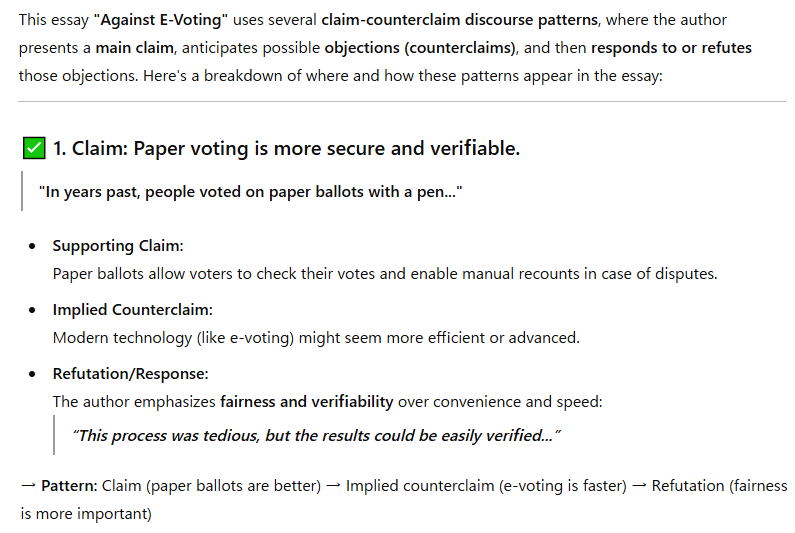
Can computer technology be used to steal an election? For the most
part, innovative technologies promise to make people's lives easier and more
comfortable, but these innovations can also be a risk, particularly to demo-
cratic processes. Societies should not rely solely on electronic systems
for
voting because elections are too important to trust to computers.
In years past, people voted on paper ballots' with a pen. Voters
could look over their ballots to ensure that they did not make a mistake.
Also, when there was a dispute over the results of an election, paper ball-
ots allowed election officials to count votes by hand. This process was
tedious, but the results could be easily verified to see if there were any
discrepancies between counts. Several countries still use this traditional
system of voting, and it provides a crucial foundation for ensuring fairness.
Today, however, voters cannot be sure whether electronic voting sys-
tems are reliably counting their votes. For example, a computer hacker could
develop a program that redirected a person's vote from one candidate to an-
other. Although some people might think this is unlikely, problems with com-
puter security have occurred throughout the world. The simple fact is that
hackers can break into many computer systems for their own purposes. By il-
legally entering an online polling site, they could change the outcome of
an election. Jones and Simons (2012) warn of such a possibility: "a risk of
Internet voting is that the computer receiving the voted ballots could be
attacked over the Internet by individual hackers, political operatives, for-
eign governments, or terrorists" (p. 269). Citizens should also question
whether electronic voting enhances the voting process. As the old saying
goes, "If something isn't broken, don't fix it."
If a government decides to use an electronic voting system, it
should ensure that all voters receive receipts for their votes that could
then be collected for subsequent verification. These receipts would clearly
indicate that the vote had gone to the selected candidate. Furthermore, if
any candidate suspects that an election is unfair, these receipts could be
counted by hand and checked against the computer results. At the very least,
as Hale, Montjoy, and Brown (2015) argue, voting should be a simple, secure,
and consistent process, regardless of the voting procedure being used.
Computer technologies have improved the quality of our lives vastly,
but these technologies are not a cure for all of society's needs. Sometimes
a little more human work ensures a better, fairer result. Since voting is
critically important to the effective working of society, governments should
not rely only on computers for all elections.
Claim
Supporting Claim
Counterclaim
Refutation
